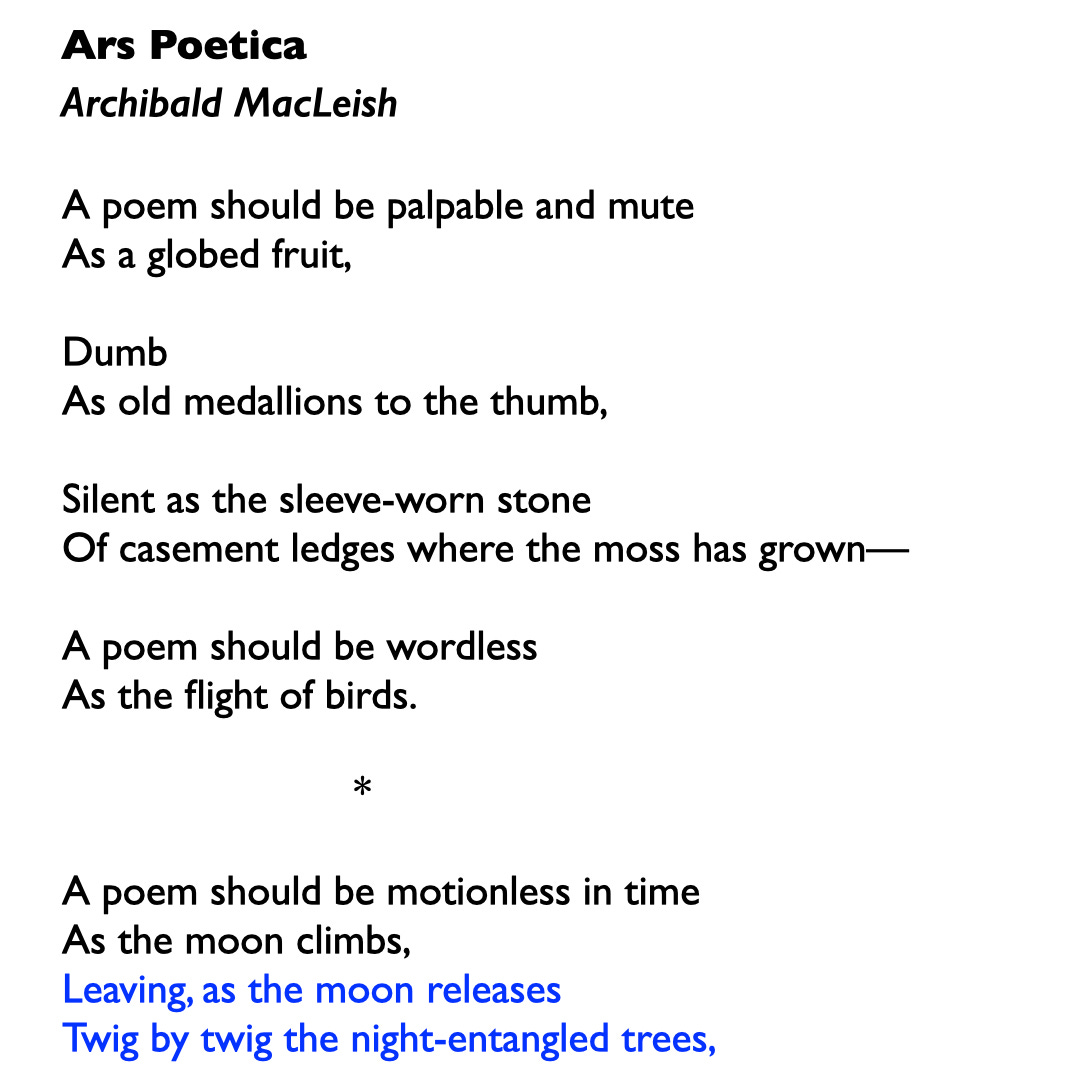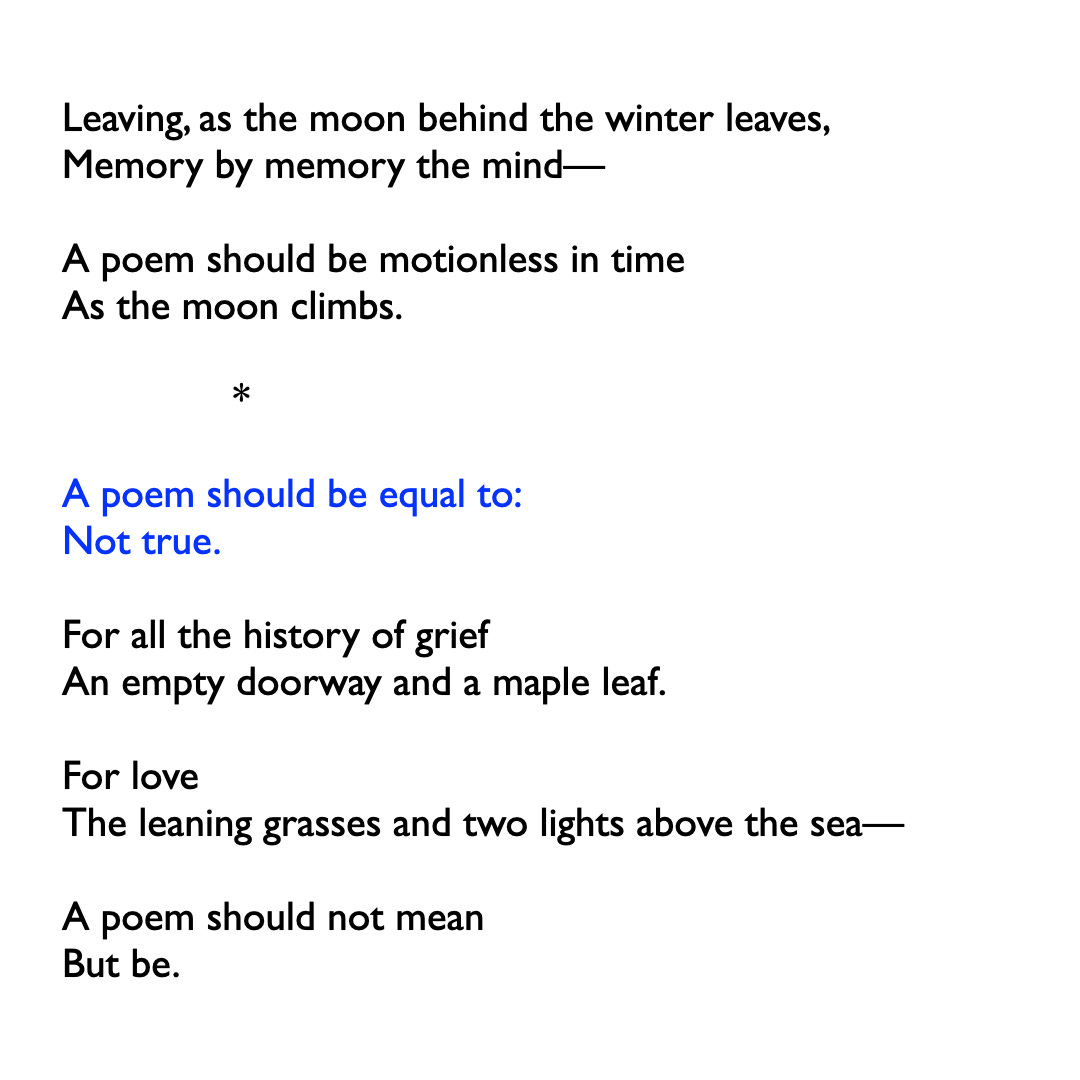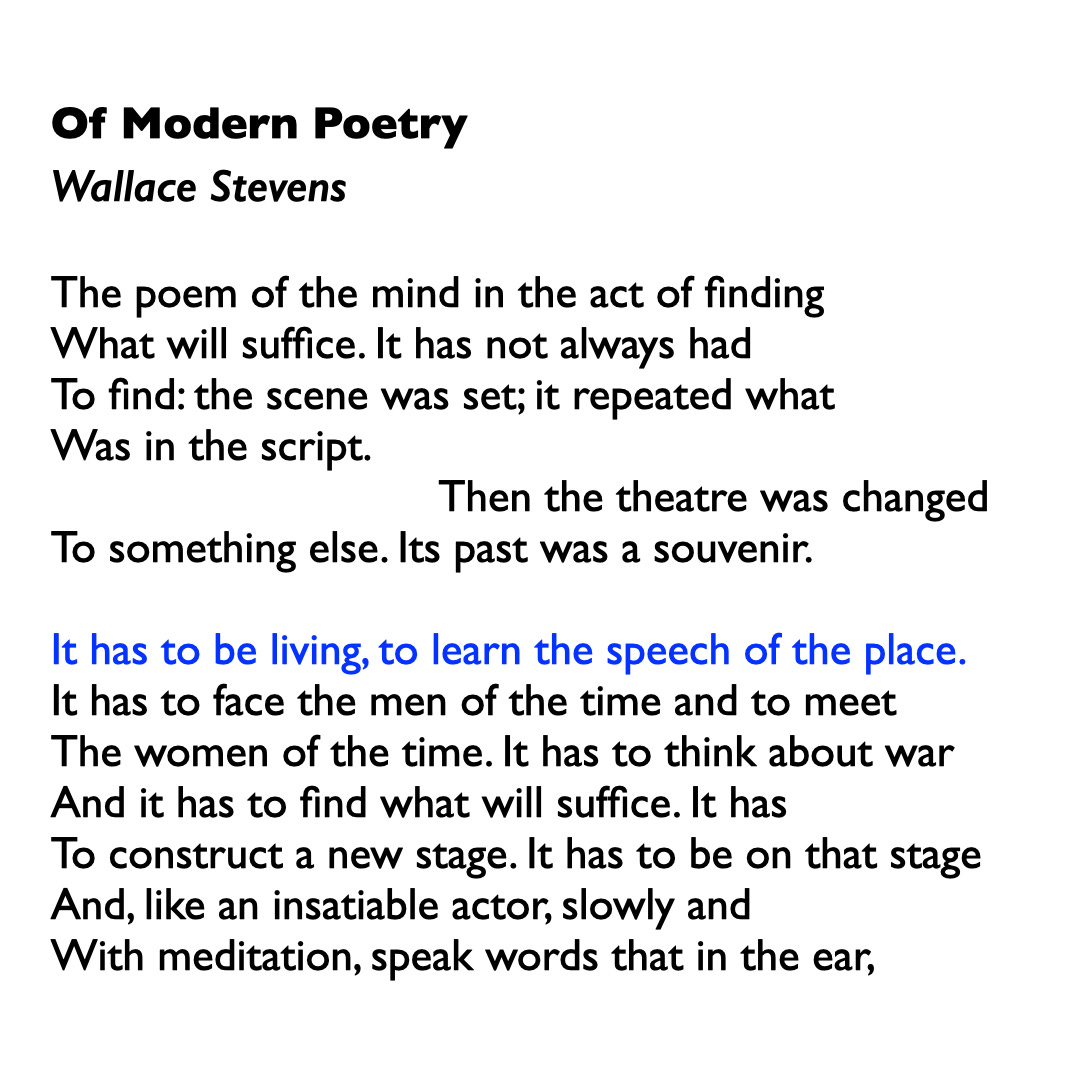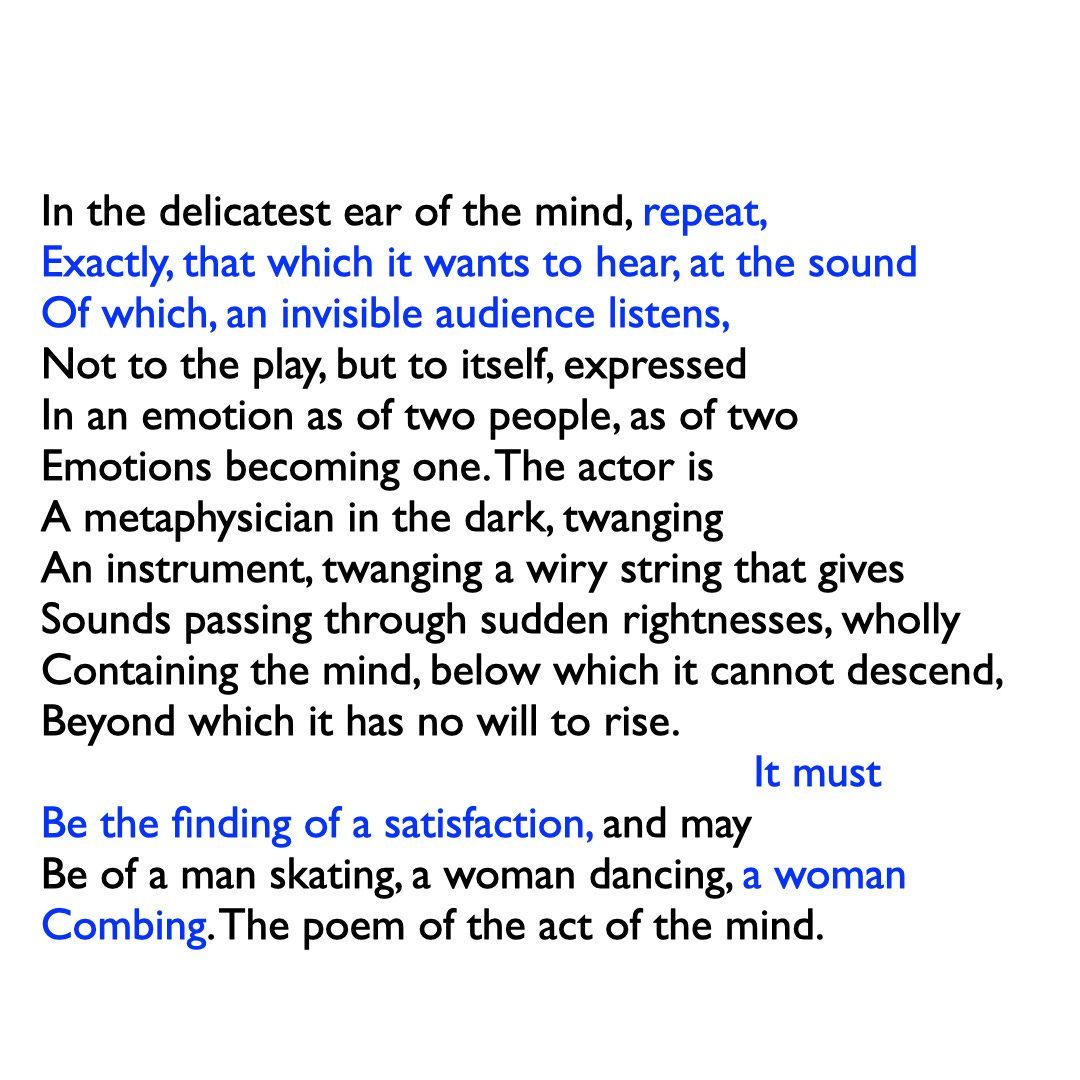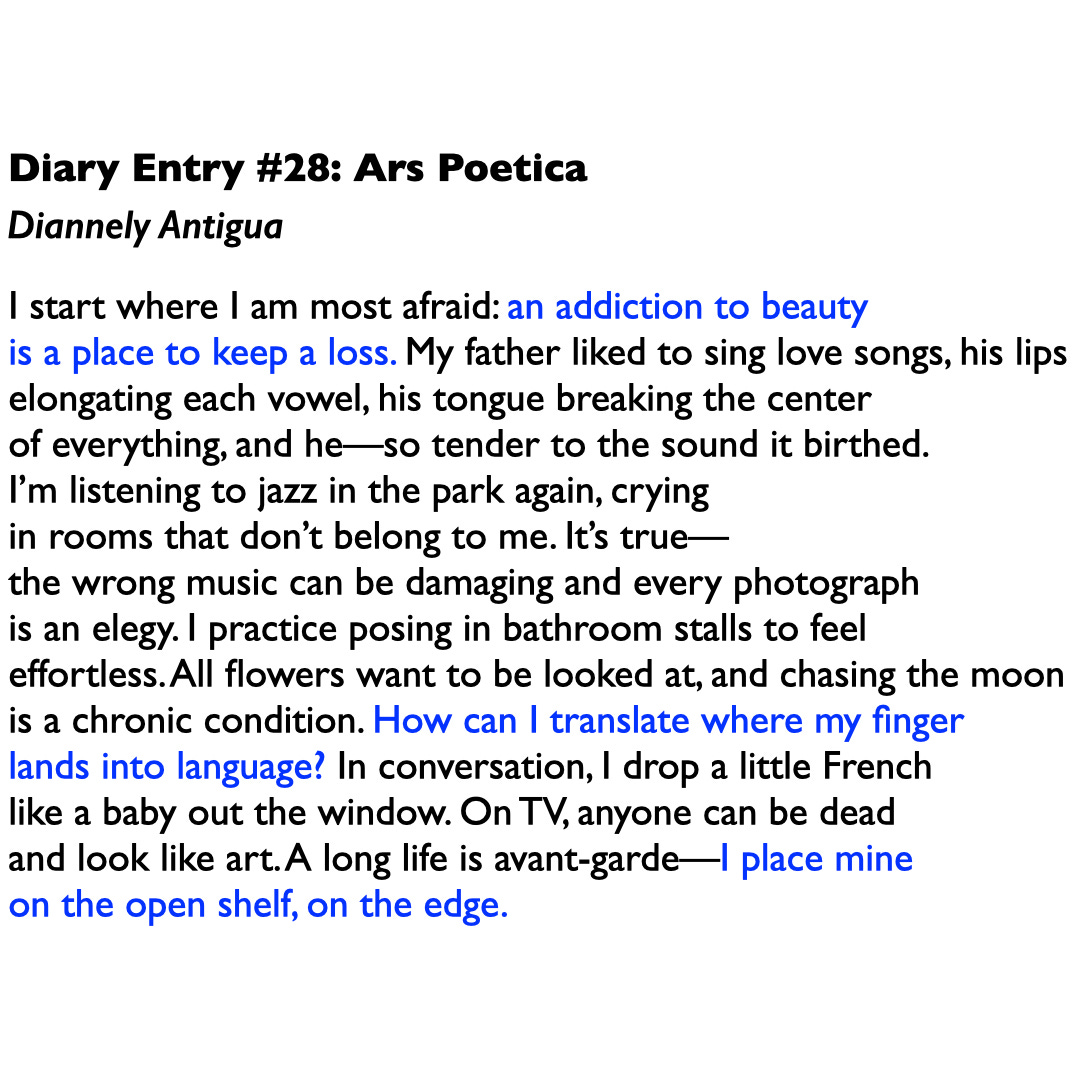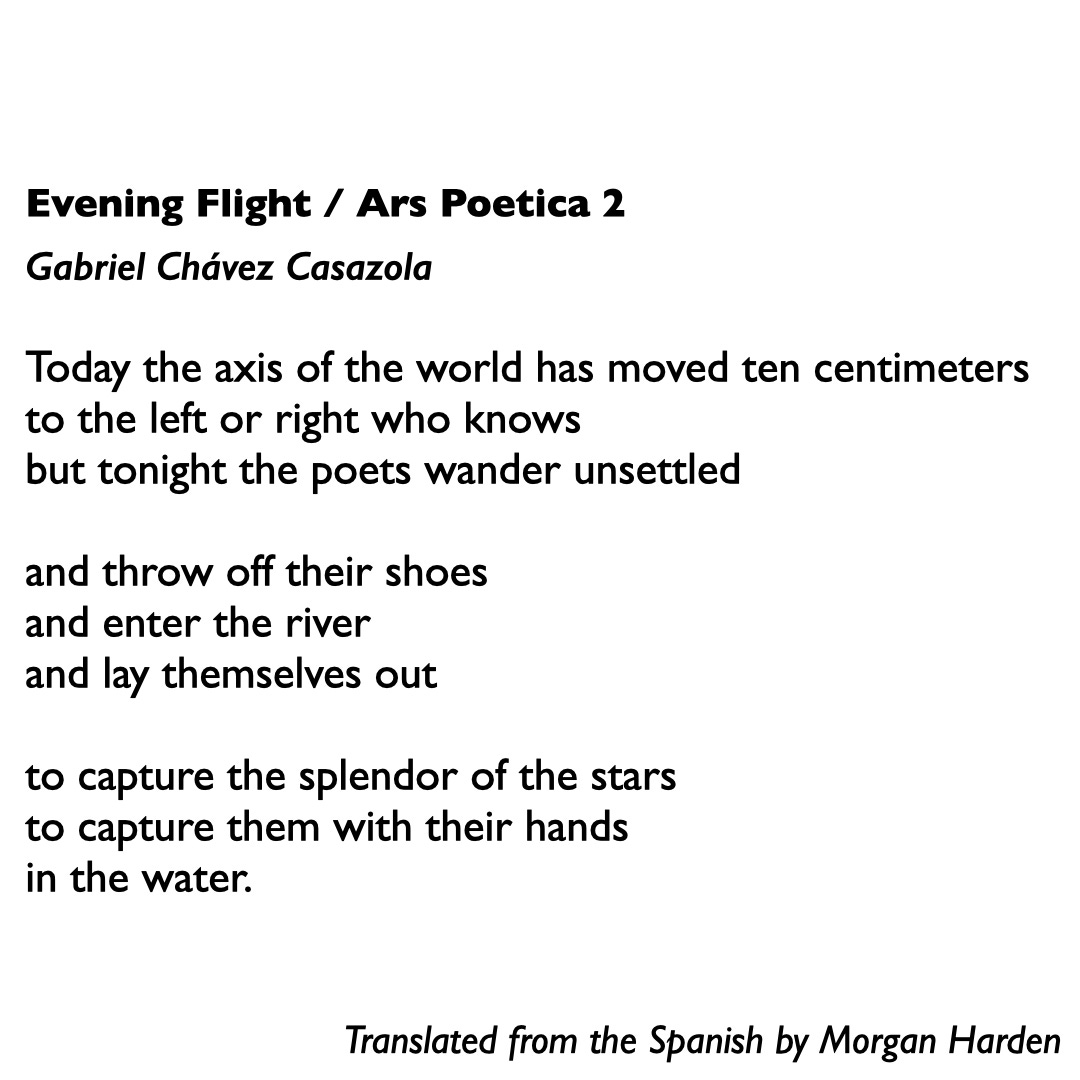Ars Poetica
Archibald Macleash, Wallace Stevens, Aracelis Girmay, Diannely Antigua, Gabriel Chávez Casazola
Stolen Metaphors
Moments of transition house the sublime in a unique way. It's a combination of anticipation and surprise that bestows rupture with an almost sacred quality. Sometimes you can pre-empt it, in the same way that you know when a phrase of music is going to reach its destination. There is no diminishing of rapture, simply because it takes time for the mind to slip into a new shell, and realise the contours of a new movement. For instance, in a veena recital, when the artist's finger strums a different landscape, changing the pace, even when it is not sudden, you are always taken by surprise. You are led slowly from deep dawn, where the slow meanderings of alaap mime sleep, into the gradual awakening of jod, the inevitability of birds, and the sun casting a lazy glance. The morning unstrings every little thing that the night has made taut. A sudden draught is music to the dance of peepal leaves. I am often struck by the romance of the peepal leaf - how each moment of its existence is a love letter to survival.
Contractors hate them because they rise from nowhere creating cracks in foundations, walls, and concrete terraces. But they are beautiful even in death, turning translucent with decay, against the opacity of life. The cooker's seethi is another kind of change. A friend once anticipated that moment for me by asking me: "Have you heard fire speak to water?" It makes one think of how ordinary things are transformed by the sudden awareness of multiple narratives. I think it is this constant awareness of diverse frames of references that turns poets towards the occasional weakness of metaphor, while attempting transcription.
I remember a keynote address at a literary festival, where the stalwart Gulzar talked about this very idea in the context of the many literatures and languages of the Indian subcontinent. There were two metaphors that stayed with me from that talk. The first was an affirmation (a bit of a tangent, really). At a very mundane level it is even an excuse, for me: "I don't like high seats. I don't like them, because my feet don't touch the ground". I have stolen his metaphor because I don't like high seats either, and now I understand why.
I found the second metaphor fascinating - he talked about the many languages that young poets across the country dreamt and wrote in. He referred to a metallic pot on a chulha. He talked about the process of cooking, of the slow transformation tempered with various spices. As the water from the dish starts to boil, the lid starts to vibrate - a tremor of tintinnabulation. As he reached the end of this tender description, he looked at the audience and said, 'itni saari matkiya' (so many pots). I remember sighing as I basked in the slow building up of the process of the poet, and the sudden movement from a state of singularity to the plural effusion of this magnificent thing - this alternative narrative of fire talking to water, of creation, and of the art of poetry. Ars poetica.
In the last post I shared Kshemendra’s meditation on the sensibility that a poet must nurture. I think every poet has written such reflexive poems, but here are a few of my favourites. Archibald Macleash’s poem written in the last quarter, of the last century is one of the standards of this canon.
I unclasp the prescriptive potli Macleash has placed his musings in, to reveal the compelling proposition that a poem (is) equal to: not true. This comfort with uncertainty, I see as essential to the poet whose craft is not different from a sculptor or a weaver (in that it is a play between pattern and chaos). A poem is always a shard of truth coaxed out of affect, thrust like a wedge, into contemplation - both the reader’s and the poet’s. The inimitable Wallace Stevens adds his two bits.
Aracelis Girmay, one of my favourite contemporary poets, is more minimal, emphasising on the archival, recasting poetry as record of individual experience.
Poems of this kind are bound to be prescriptive, at sometimes even entitled. They are more tolerant of neatly tied up ends - but I like it when there is the statement of a personal mission (rather than a universal one), or the presence of the observer, even separate from the “I”. Sharon Olds in her “Take the ‘I’ out” nuances this notion of identity, as cast into the fire of feeling, and poetic experience:
“…I, I, I, I,
girders of identity, head on,
embedded in the poem. I love the I
for its premise of existence—our I—when I was
born, part gelid, I lay with you
on the cooling table, we were all there, a
forest of felled iron. The I is a pine,
resinous, flammable root to crown,
which throws its cones as far as it can in a fire.”
I like Diannely Antigua’s take, too, which feels like the burning log that is ‘I’ throwing embers into the night.
The Spanish poet Casazola’s Ars Poetica 2 again, like Girmay, but with a more expansive framing, uses a single image, fashioning wondrous threads from the natural world into the poet’s notebook.
A particularly intriguing take on this mode of poems is Norman Dubie’s Ars Poetica. I am not sharing it here, because it opens up a whole other discourse about the writing of such poems, and I have too many things to say. You could read Brian Barker’s response to the poem, if you are interested. It is something of an outlier, in a theatre of sparkling outliers, actually. There is also the brilliant modern day stream-of-consciousness series of musings that is Jorie Graham’s Overheard in the Herd. Others that I can think of right now, shared before on Poetly, include Wendell Berry’s How to be a Poet, Priya Sarukkai Chabria’s On Writing, and, of course, Naomi Shihab Nye’s How do I Know When a Poem is Finished.
Ars Poetica is a tradition of reflexive art that makes new cuts into the cave of eternal creation in poetry, new maps of the shifting terrains of representation. From the minimal to the expansive, to the vulnerable, and the deeply confessional, I find it fascinating how poets think of their processes of creation. I’m writing about this today, because the last dream that shifted its hoverfeet over the quiet sands of my winter morning sleep was precisely about this. In my dream there was a thump which I woke up to, only to find that I was still dreaming. It was the sound of something falling on the damp earth at the bottom of a very deep well. As I slowly pulled this creature up to the level of the ground my eyes could not make out what it was. It was the dead of night, and there was only the dim light of a lamp of some sort. I remember this thought entering the frame like a bunch of dead pixels - this is the shape of a poem. When I woke up, finally, I tried to remember what the creature was exactly. I do not know what name to give it. It was crouched, scared of being exposed in some way, uncertain, more animal, than human. It felt a bit comical, actually, this ars poetica, but perhaps you could use as reference the fish-like surreal figure that sleeps on the ground of Dali’s The Persistence of memory.
If you like what you read and agar mann hain, ‘buy me a coffee’.
(Matlab, if you can’t, that’s also fine, obviously. This is a free newsletter.)
(If the portal is not working for some reason, please write to me - poetly@pm.me)
Also. Maja aaya tho share this post, nai?
Thankyou for stepping into this shade in the clearing!
Subscribe if you are not reading this in your inbox, and would like to hang out here more often.



